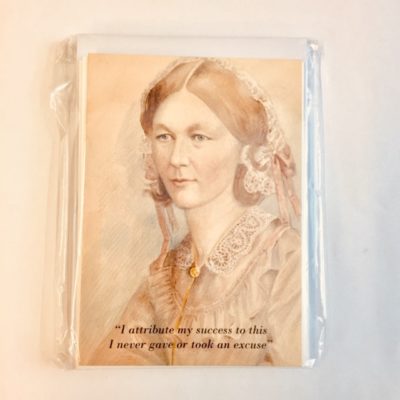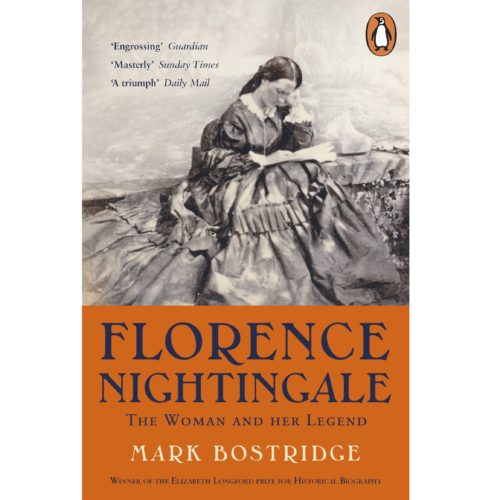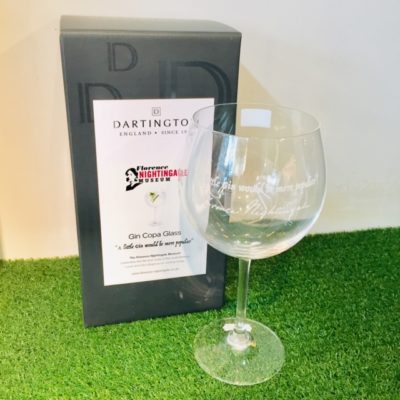-
Out of stock
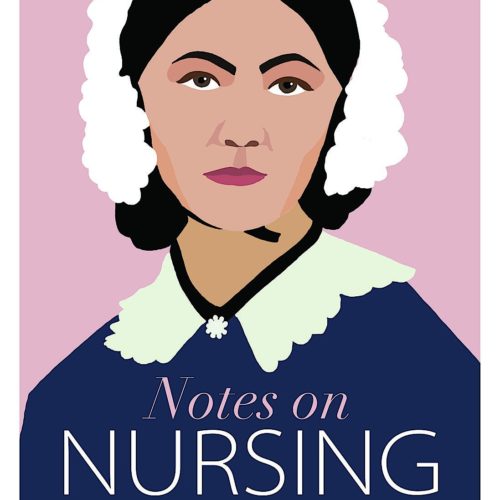 In this classic historical nursing text, first published in 1859, Nightingale wrote '...nothing but observation and experience will teach us the ways to maintain or to bring back the state of health'. The guidance Nightingale wrote of includes such practicalities as ventilation, heating, noise, light, bedding and the cleanliness of the patient's environment, as well as a nurse's personal cleanliness and methods of observation. The pioneering work of Florence Nightingale and her effort to structure the care of the unwell has since earned her recognition as one of the world's founders of modern nursing. Over 160 years later, the observations of the sick by Florence Nightingale are astonishingly similar, which is why Notes on Nursing is as practical as it is captivating. Whether you are a student nurse or experienced nurse, or simply caring for the infirm, this book stands the test of time and maintains its innovativeness. Florence is remembered as the founder of modern nursing, but she was so much more; a female icon in her own lifetime, a healthcare pioneer, an influential statistician, a trailblazer and a leader. And her legacy still lives on today. Published in conjunction with - and including a foreword by - the Florence Nightingale Museum. All shop sales support the work of the Florence Nightingale Museum, a registered charity, and its work.
In this classic historical nursing text, first published in 1859, Nightingale wrote '...nothing but observation and experience will teach us the ways to maintain or to bring back the state of health'. The guidance Nightingale wrote of includes such practicalities as ventilation, heating, noise, light, bedding and the cleanliness of the patient's environment, as well as a nurse's personal cleanliness and methods of observation. The pioneering work of Florence Nightingale and her effort to structure the care of the unwell has since earned her recognition as one of the world's founders of modern nursing. Over 160 years later, the observations of the sick by Florence Nightingale are astonishingly similar, which is why Notes on Nursing is as practical as it is captivating. Whether you are a student nurse or experienced nurse, or simply caring for the infirm, this book stands the test of time and maintains its innovativeness. Florence is remembered as the founder of modern nursing, but she was so much more; a female icon in her own lifetime, a healthcare pioneer, an influential statistician, a trailblazer and a leader. And her legacy still lives on today. Published in conjunction with - and including a foreword by - the Florence Nightingale Museum. All shop sales support the work of the Florence Nightingale Museum, a registered charity, and its work. -
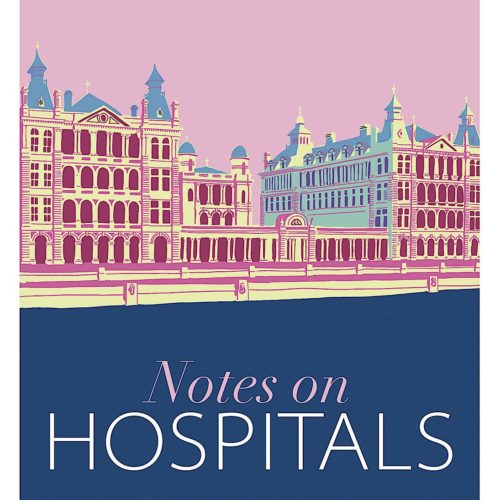 In this classic historical text on hospitals - featuring a foreword by the Florence Nightingale Museum - Nightingale reveals her passion for good hospital architecture and design. At Scutari she saw first hand the harm which can be caused by inadequate and poorly-designed hospital buildings. Nightingale openly criticised designs which she thought might lead to higher infection rates, and therefore patients deaths, Florence Nightingale, keen to increase the range of employment open to women, spent time visiting hospitals in Europe, studying their methods of training nurses, before she was herself trained at Kaiserswerth in 1851. During the Crimean War, Florence Nightingale's quiet determination in tackling the problems in the face of a deep-rooted military establishment, as well as her understanding of the spiritual and physical needs of the wounded soldiers and their families, won her great acclaim and an international reputation as 'The Lady with the Lamp'. Reports of Florence Nightingale's findings and suggestions had a profound effect on the medical community and re-established her as an international healthcare authority. Published in conjunction with the Florence Nightingale Museum. All shop sales support the Florence Nightingale Museum, a registered charity, and its work.
In this classic historical text on hospitals - featuring a foreword by the Florence Nightingale Museum - Nightingale reveals her passion for good hospital architecture and design. At Scutari she saw first hand the harm which can be caused by inadequate and poorly-designed hospital buildings. Nightingale openly criticised designs which she thought might lead to higher infection rates, and therefore patients deaths, Florence Nightingale, keen to increase the range of employment open to women, spent time visiting hospitals in Europe, studying their methods of training nurses, before she was herself trained at Kaiserswerth in 1851. During the Crimean War, Florence Nightingale's quiet determination in tackling the problems in the face of a deep-rooted military establishment, as well as her understanding of the spiritual and physical needs of the wounded soldiers and their families, won her great acclaim and an international reputation as 'The Lady with the Lamp'. Reports of Florence Nightingale's findings and suggestions had a profound effect on the medical community and re-established her as an international healthcare authority. Published in conjunction with the Florence Nightingale Museum. All shop sales support the Florence Nightingale Museum, a registered charity, and its work. -
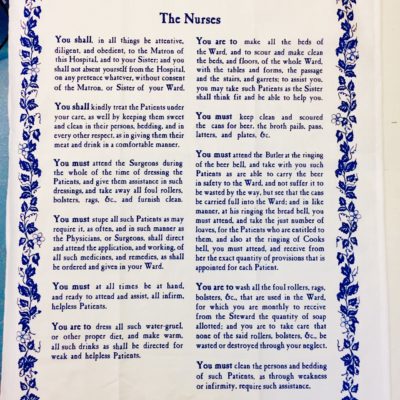 The Nightingale Training School opened its doors in July 1860 at St. Thomas' Hospital. All probationers need to read and write and be able to learn at least some rudimentary Latin to administer medicines. The Nightingale approach to training focused on dedication and discipline. This tea towel features the Regulations, dating from 1860, that the probationers would have had to have followed. All shop sales support the Florence Nightingale Museum, a registered charity, at its work.
The Nightingale Training School opened its doors in July 1860 at St. Thomas' Hospital. All probationers need to read and write and be able to learn at least some rudimentary Latin to administer medicines. The Nightingale approach to training focused on dedication and discipline. This tea towel features the Regulations, dating from 1860, that the probationers would have had to have followed. All shop sales support the Florence Nightingale Museum, a registered charity, at its work. -
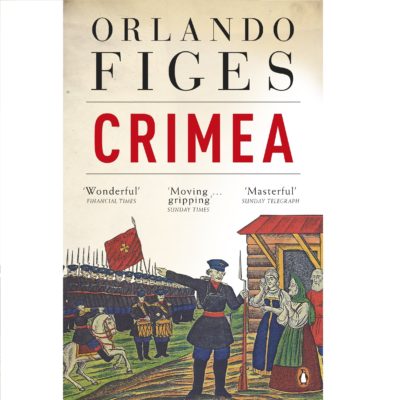 by Orlando Figes The Crimean War one of the fiercest battles in Russia's history, killing nearly a million men and completely redrawing the map of Europe. Pitting the Tsar's empire against an alliance of Britain, France and the Ottoman Empire, it was the first conflict to use photography, the telegraph and newspapers; a war over territory, from the Balkans to the Persian Gulf; a war of religion, driven by a fervent, populist belief by the Tsar and his ministers that it was Russia's task to rule all Orthodox Christians and control the Holy Land; it was the original 'total war'. Orlando Figes' vivid new book reinterprets this extraordinary conflict. Bringing to life ordinary soldiers in snow-filled trenches, surgeons on the battlefield and the haunted, fanatical figure of Tsar Nicholas himself, Crimea tells the human story of a tragic war. All shop sales support the Florence Nightingale Museum, a registered charity, and it's work.
by Orlando Figes The Crimean War one of the fiercest battles in Russia's history, killing nearly a million men and completely redrawing the map of Europe. Pitting the Tsar's empire against an alliance of Britain, France and the Ottoman Empire, it was the first conflict to use photography, the telegraph and newspapers; a war over territory, from the Balkans to the Persian Gulf; a war of religion, driven by a fervent, populist belief by the Tsar and his ministers that it was Russia's task to rule all Orthodox Christians and control the Holy Land; it was the original 'total war'. Orlando Figes' vivid new book reinterprets this extraordinary conflict. Bringing to life ordinary soldiers in snow-filled trenches, surgeons on the battlefield and the haunted, fanatical figure of Tsar Nicholas himself, Crimea tells the human story of a tragic war. All shop sales support the Florence Nightingale Museum, a registered charity, and it's work. -
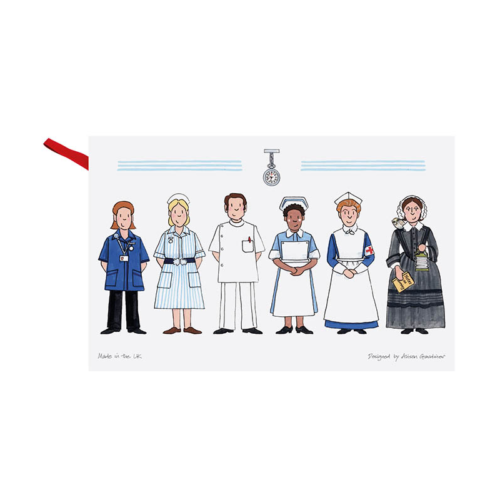 Our Nurses range has been designed for us by Alison Gardiner. The range features different nurses from Florence through to a modern day nurse and reflects the changes that have been made to nursing. The tea towels are printed and hand finished in Lancashire, England. All shop sales support the Florence Nightingale Museum, a registered charity, and its work.
Our Nurses range has been designed for us by Alison Gardiner. The range features different nurses from Florence through to a modern day nurse and reflects the changes that have been made to nursing. The tea towels are printed and hand finished in Lancashire, England. All shop sales support the Florence Nightingale Museum, a registered charity, and its work. -
Sale!
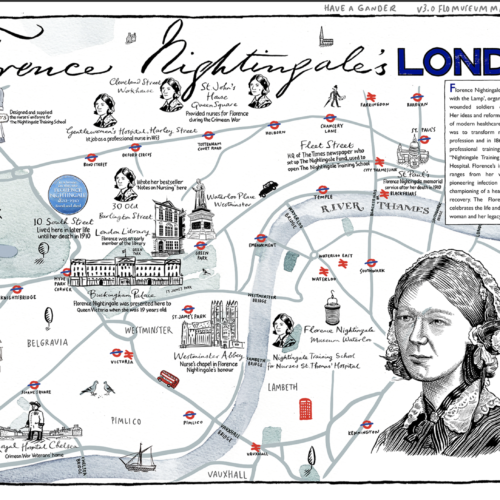 Discover all the places in London associated with Florence with this beautiful map. Exclusively hand drawn and printed in Kent, England for the Florence Nightingale Museum by Have A Gander. Available in two sizes. All shop sales support the Florence Nightingale Museum, a registered charity, and its work.
Discover all the places in London associated with Florence with this beautiful map. Exclusively hand drawn and printed in Kent, England for the Florence Nightingale Museum by Have A Gander. Available in two sizes. All shop sales support the Florence Nightingale Museum, a registered charity, and its work. -
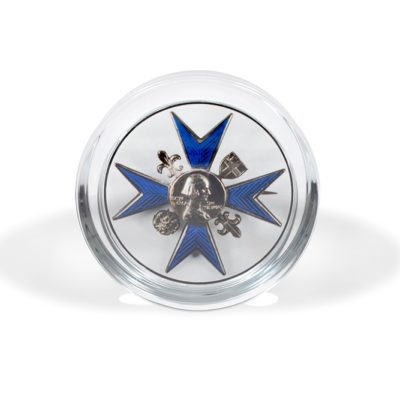 Nightingale badges were awarded to nurses at the end of their training at the Nightingale Training School at St. Thomas' Hospital from 1925-1992. The bright blue colour of the enamel was inspired by the ribbon of the Order of Merit awarded to Florence Nightingale in 1907. This paperweight features an image of the Nightingale Training School Badge in it's centre. All shop sales support the Florence Nightingale Museum, a registered charity, and it's work.
Nightingale badges were awarded to nurses at the end of their training at the Nightingale Training School at St. Thomas' Hospital from 1925-1992. The bright blue colour of the enamel was inspired by the ribbon of the Order of Merit awarded to Florence Nightingale in 1907. This paperweight features an image of the Nightingale Training School Badge in it's centre. All shop sales support the Florence Nightingale Museum, a registered charity, and it's work. -
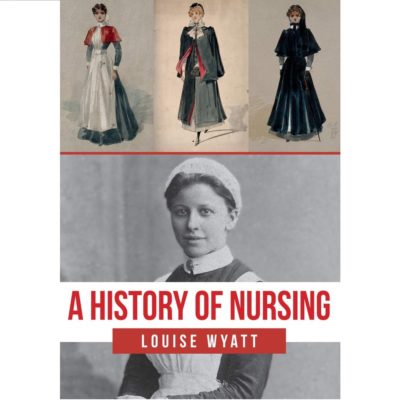 A History of Nursing explores the history of nursing by investigating the earliest records of the caring profession, how it progressed and what established it along the way to becoming the nursing we see today. It starts at the beginning of the story -? how, once upon a time, all we had to depend on was Mother Nature. Over time, education and standards improved for the safety, development and governance of the profession. Not everything was plain sailing and the book introduces lesser-known people who made this possible, sometimes at great cost to themselves, and the effect military nursing had on the nineteenth century in turning nursing from religious principles to the secular standards we see today. How did nursing go from being knowledge handed down through ancient scripts, folklore and sometimes by accident, to the degree-level, accountable practice of modern times? And why do nurses not wear hats anymore? A History of Nursing answers all these questions and more. All shop sales support the Florence Nightingale Museum, a registered charity, and its work.
A History of Nursing explores the history of nursing by investigating the earliest records of the caring profession, how it progressed and what established it along the way to becoming the nursing we see today. It starts at the beginning of the story -? how, once upon a time, all we had to depend on was Mother Nature. Over time, education and standards improved for the safety, development and governance of the profession. Not everything was plain sailing and the book introduces lesser-known people who made this possible, sometimes at great cost to themselves, and the effect military nursing had on the nineteenth century in turning nursing from religious principles to the secular standards we see today. How did nursing go from being knowledge handed down through ancient scripts, folklore and sometimes by accident, to the degree-level, accountable practice of modern times? And why do nurses not wear hats anymore? A History of Nursing answers all these questions and more. All shop sales support the Florence Nightingale Museum, a registered charity, and its work. -
 If you are a teacher or a parent whose child is learning about Florence, then this pack is for you! Based around the KS1 curriculum, this pack gives a good basis for learning all about Florence and the work she did in the classroom and at home. All shop sales support the Florence Nightingale Museum, a registered charity, and its work.
If you are a teacher or a parent whose child is learning about Florence, then this pack is for you! Based around the KS1 curriculum, this pack gives a good basis for learning all about Florence and the work she did in the classroom and at home. All shop sales support the Florence Nightingale Museum, a registered charity, and its work.

